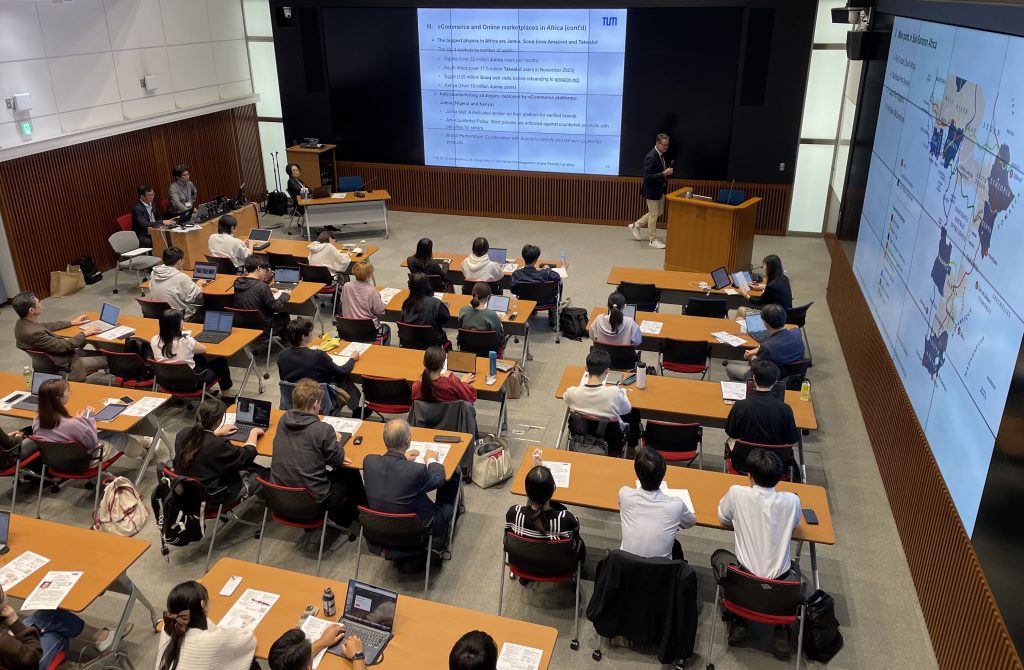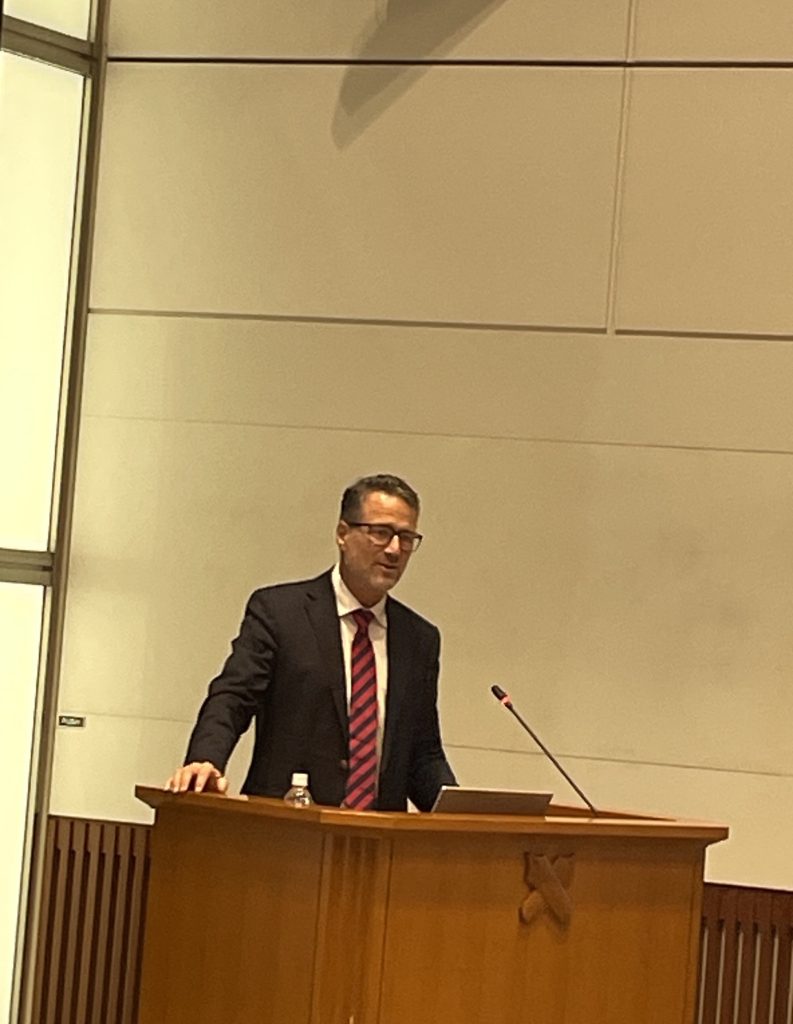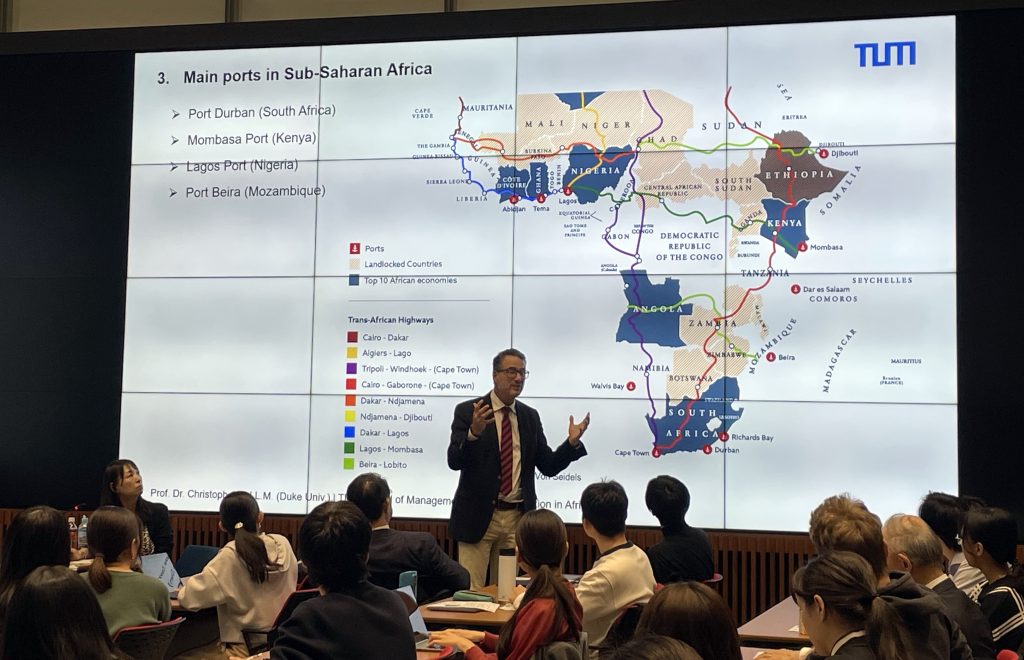NEWS&EVENTS
-
REPORT
On October 22, 2024, we welcomed Professor Ann of the Technical University of Munich, a specialist in intellectual property law, to give a lecture on brand protection in Africa in the age of e-commerce.
Despite the late start time of 6 p.m., a diverse group of about 50 people including students, faculty and staff from Keio University and other universities, intellectual property departments of law firms and private companies, as well as high school students, gathered at the Mita Campus of Keio University and listened attentively.

Speaker: Prof. Dr. jur. Christoph Ann, LL. M.
TUM School of Management, Chair for Intellectual Property
Distinguished Guest Professor, Keio University
Moderator: Yuko Kimijima, Professor
Faculty of Law and Graduate School of Law, Keio University (Intellectual Property Law)
Director, Cyber-Physical Sustainability Center (CPS Center)
Program:
18:15 Opening Remarks/Opening Remarks
18:20 Lecture “Brand Protection in Africa in the Age of E-commerce”
19:20 Q&A
19:50 Closing Remarks
20:00 Closing
Lecture
Professor Ann gave a lecture on the importance of trademarks in counterfeiting and brand protection, and the role of intellectual property law, referring to a map projected on a large screen at the venue showing the specific movements, positional relationships, and distances of people and goods in each country and key points on the African continent.
In Africa, the problem of trademark counterfeiting is particularly acute in sub-Saharan Africa, where the judicial system and customs are often not fully functional, and the distribution of counterfeit goods through e-commerce and online marketplaces is an unsolved problem in Europe and is even more serious in Africa.
For example, more than 40% of counterfeit medicines worldwide reach Africa, nearly half of alcoholic beverages sold in Kenya are counterfeit, more than 15 million people in Nigeria use counterfeit smartphones, as well as illegal trade in Africa in pharmaceutical drugs, weapons, and human trafficking.
Professor Ann explained that the problems of customs authorities in border control include a lack of training among staff, corruption, and a lack of cooperation and coordination with national trademark offices and legal systems, and that companies can assist customs officials by providing training for the detection of counterfeit goods.
In addition, it was revealed that there is a time lag between the application of the trademark and the grant, and there are problems that bribery is sometimes used to speed up the process, and the destination is often disguised.
Mobile commerce is the mainstream in Africa, and although each platform is taking measures against counterfeiting, the proliferation of e-commerce has made it more difficult to fight counterfeit sellers, and there is a limit to its effectiveness. Professor Ann concluded his lecture by stating that trademark protection plays an important role in combating counterfeit goods and that cooperation with trademark offices in each country and region is necessary, and that counterfeit goods can be effectively reduced by strengthening enforcement at customs, especially by strengthening enforcement at customs.


pick_IMG_6264add-1024x560.jpg)
*Affiliations and positions listed are those at the time of the event.
This event received support from the JST “Moonshot R&D Program” (project number JPMJMS2215), as part of the Cyber-Physical Sustainability Research Group.

